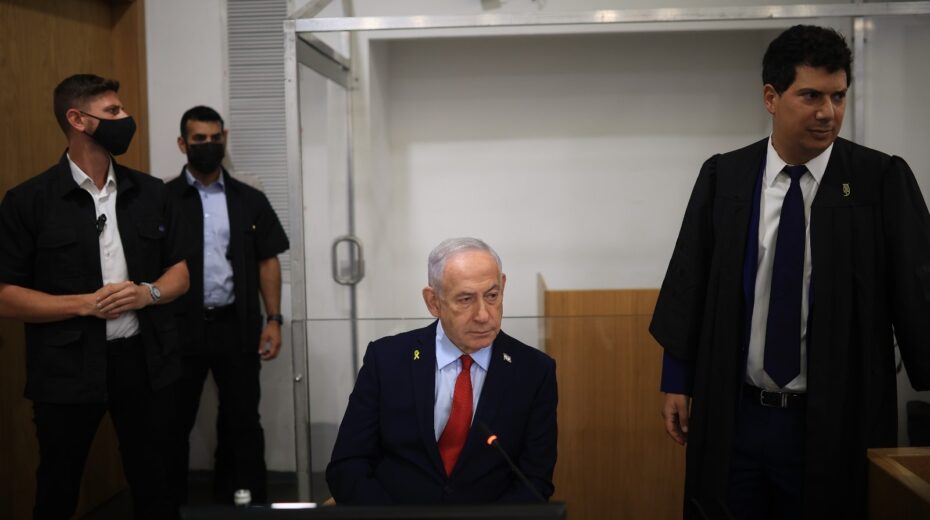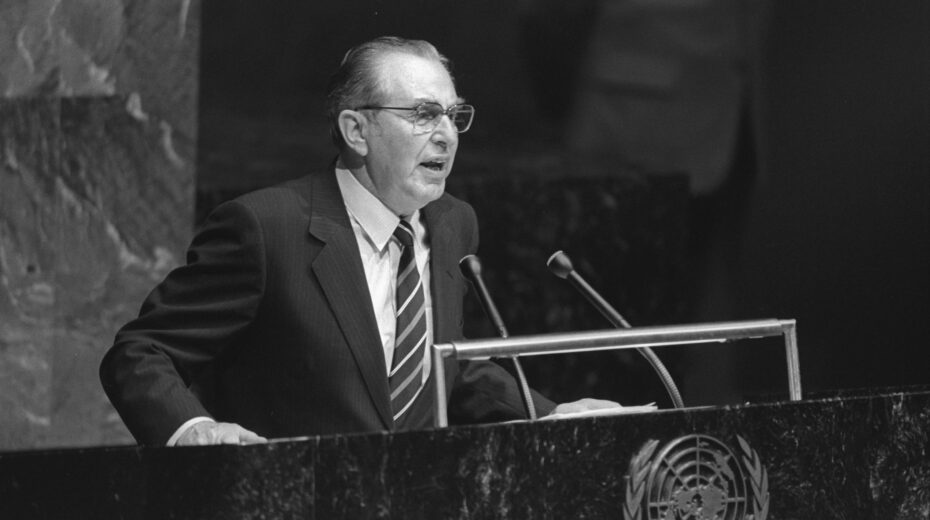The following is a letter sent to Israel Today by Michael Oh, director of the Lausanne Movement, in response to our previous report Leading Evangelism Movement Slams Christian Zionism (emphasis ours):
The Lausanne Movement is a global network of individuals and ministries from a wide range of denominations, nationalities, theologies, and strategic perspectives that shares an evangelical faith and commitment to work together to bring the whole gospel to the whole world, which includes both Jews and Palestinians.
Our publication Lausanne Global Analysis represents a diversity of evangelical viewpoints within the bounds of our foundational documents (The Lausanne Covenant, The Manila Manifesto, The Cape Town Commitment). Our priority is to encourage partnerships among evangelicals of all nationalities for global mission, not to define singular positions on each of the issues covered in our foundational documents. The views and opinions expressed in Lausanne Global Analysis articles are those of the authors and do not necessarily reflect the personal viewpoints of Lausanne Movement leaders or networks. In some cases, such as the article you refer to, the viewpoints of some of our constituency are quite far apart. We have now added a disclaimer to the Lausanne Global Analysis so as to avoid future misrepresentation of the Lausanne Movement by outside sources.
I am particularly concerned about the inaccurate portrayal of The Cape Town Commitment found in your article, namely related to section IIB–2 in which ‘Palestinian suffering’ is mentioned. It is mentioned in a section on ‘Christ’s peace in ethnic conflict’, which reads as follows:
“We acknowledge with grief and shame the complicity of Christians in some of the most destructive contexts of ethnic violence and oppression, and the lamentable silence of large parts of the Church when such conflicts take place. Such contexts include the history and legacy of racism and black slavery; the holocaust against Jews; apartheid; ‘ethnic cleansing’; inter-Christian sectarian violence; decimation of indigenous populations; inter-religious, political and ethnic violence; Palestinian suffering; caste oppression; and tribal genocide. Christians who, by their action or inaction, add to the brokenness of the world, seriously undermine our witness to the gospel of peace.”
Palestinian suffering is cited as one example in a list of many other contexts of ethnic conflict. In no way does The Cape Town Commitment call Christians to repent for supporting Israel nor does it link Palestinian suffering as a result of Christian support for Israel. Furthermore, there is no rank of importance to the different contexts of ethnic conflict that we mention.
In addition, the Lausanne Movement does not and cannot prescribe how the nation of Israel should deal with the many sensitive internal challenges it lives with daily. However, we do have a commitment to ongoing, healthy discussion on Israeli/Palestinian reconciliation and to be bearers of Christ’s peace in ethnic conflict.
The longest standing network in the Lausanne Movement is the Lausanne Consultation on Jewish Evangelism (LCJE), which was started in 1980 to share the good news of Messiah Jesus with Jews. We stand in unity with the LCJE in their ministry around the world among the Jewish people. Future articles from the LCJE have been commissioned for the Lausanne Global Analysis.
Sincerely,
Michael Oh
Executive Director/CEO
Lausanne Movement
EDITOR’S NOTES
Israel Today would like to add several notes of clarification regarding the above letter received from the Lausanne Movement.
-
Michael Oh distances Lausanne, or at least some of its members, from the anti-Christian Zionist views recently published in Lausanne Global Analysis. But, he also states that the diverse viewpoints appearing in the publication all fall within the bounds of Lausanne’s foundational documents, suggesting that opposition to Bible-based Christian support of Israel is in line with Lausanne’s doctrines of faith.
-
The letter takes issue with Israel Today’s portrayal of the 2010 Cape Town Commitment. Michael Oh stresses that the document does not explicitly “call Christians to repent for supporting Israel.” But in the paragraph following its reference to “Palestinian suffering,” the Cape Town Commitment does indeed call for “repentance for the many times Christians have been complicit in such evils…by providing defective theological justification for these.” This was widely understood at the time to be a reference to Christian support for Israel, or Christian Zionism. If Michael Oh is now saying this is not the case, then it is a very welcome clarification.
-
The Cape Town Commitment vaguely lumped together all other crises in the world, while explicitly referencing “Palestinian suffering,” calling into question Michael Oh’s assertion that “there is no rank of importance to the different contexts of ethnic conflict that we mention.”
-
The Cape Town Commitment and Michael Oh’s letter emphasize the “ethnic” nature of “Palestinian suffering,” when in fact there is no Palestinian ethnicity. Those who are today called Palestinians are universally accepted as belonging to the Arab race. This would again suggest the adoption of certain narratives prejudiced against the Jews’ historical claims in the region.











